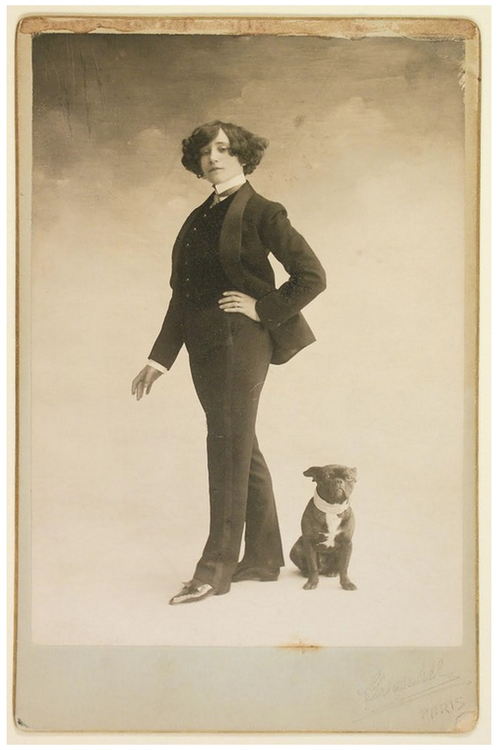
The French write Colette (1873–1954) wrote many books, including the novels Gigi and Cheri, made into popular movies. Colette also had an advice column in the women’s magazine Marie Claire during the years 1939 and 1940. These translations are from Shipwrecked on a Traffic Island and Other Previously Untranslated Gems by Colette published by State University of New York Press. The translations copyright 2014 by Zack Rogow and Renée Morel. The translators wish to thank Anne de Jouvenel, Foulques de Jouvenel, and Hugues de Jouvenel for their cooperation in making these texts available to English-speaking readers.
Note: In this letter Colette just briefly quotes the letter she’s responding to. Colette also mentions Edmond About (1828–1885), a novelist and journalist. She refers at the very end of this piece to Louise de Chaulieu, one of the heroines of Honoré de Balzac’s novel, Letters of Two Brides.
Colette on Love
It’s worth quoting, the letter I received last week. But if Marie Claire provided hospitality for all the letters that ask it for aid or advice, in terms that are moving and often literary, each one of these bound issues would weigh as much as an epic. Luckily the letter in question can be summarized in a few words: “When the time comes, and with it old age, with what will two beings, who love one another madly, replace love?” I could answer even more briefly: “But madame, with love.”
My correspondent isn’t going to let me off the hook with such a brief answer. I will just let her know to begin with that I do not relish the adverb “madly,” no matter where it is placed. Its vague and elastic paroxysm doesn’t augur well. It’s an adverb cherished by a he and she who play at being irresponsible. Turned into an adjective, it goes with every sauce: chic is mad, and the allure of a dress is mad. That hat is madly darling. I’ll stop there. Why associate love with the idea of madness? To love someone is, if not reasonable, at least inescapable. You love, you are loved: that’s what you need to assure the equilibrium of two entire lives, and not the brief fever of two youths. I would definitely bet that my correspondent has not reached the ripe age of thirty. She is looking from afar at that number 3 with its two bumps and it scares her. I hope that she will allow me, from the height of my two times thirty years, to try to reassure her. Does she think that love stands terror-stricken as she is by some fateful date, and that love sees that end arrive and right away withers,...
You have reached your article limit
Sign up for a digital subscription and continue reading all new issues, plus our entire archives, for just $1.50/month.
Already a subscriber? Sign in




